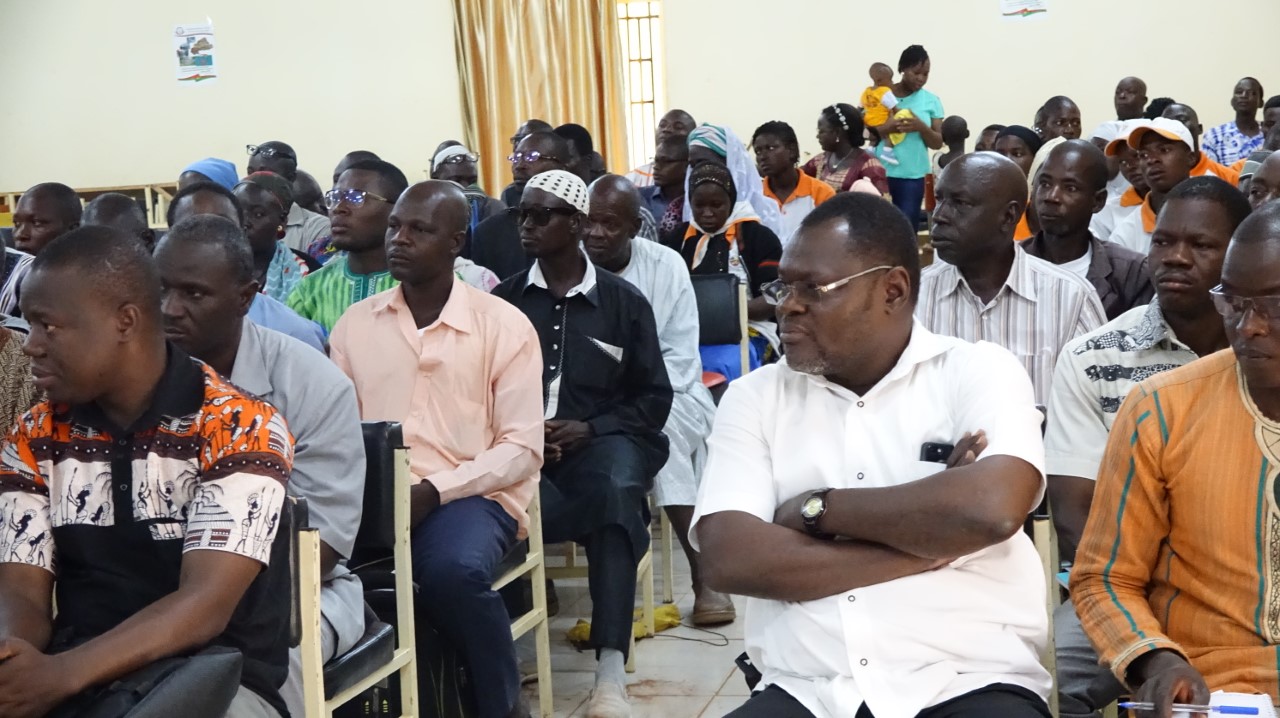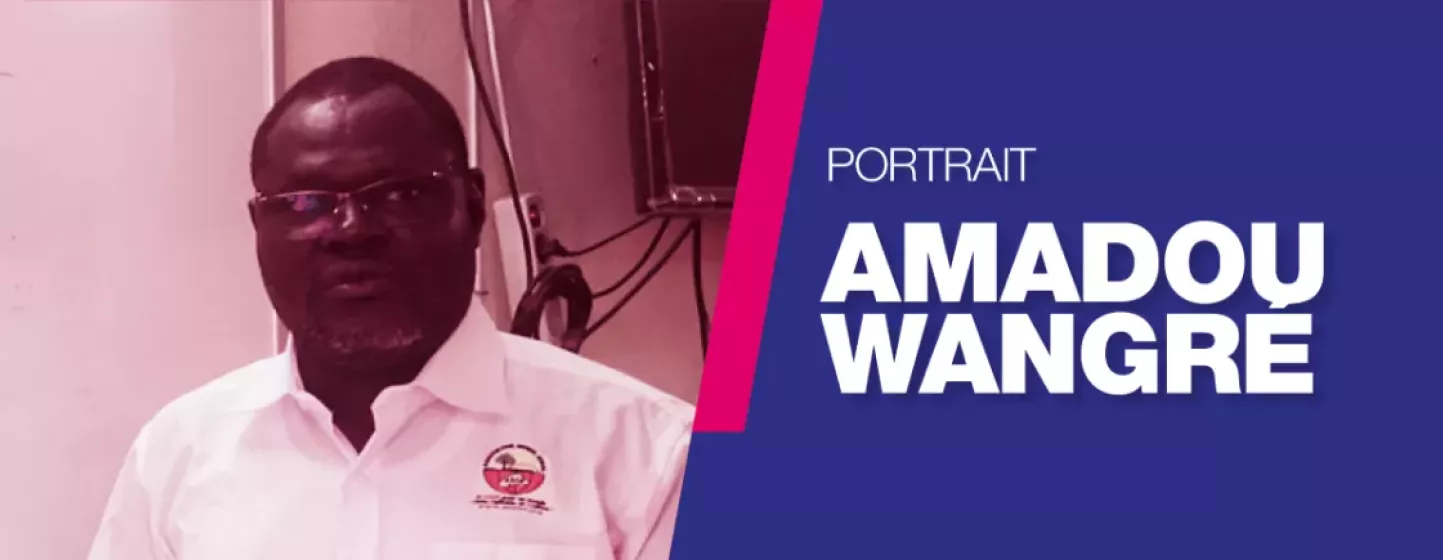Amadou Wangré, a Village Man and Proud of it!
Amadou Wangré is the national coordinator of the Rural World Association, based in northern Burkina Faso. The village and its values have always guided his actions.
Profiled by Emmanuel de Solère Stintzy.
Today, he works hand in hand with decentralised authorities and media outlets to improve local governance.
My dad was a great farmer. In our village (in the Centre-East region of Burkina Faso, Editor’s note), at harvest time, all the poor people came to help themselves to the “old man’s” millet at home. My father always told me that work never killed anyone. This is the greatest gift he left me.
Having been the national coordinator of the Rural World Association (Association monde rural - AMR), since 2012, Amadou Wangré is now approaching the age of fifty and has been marked for life by this legacy.
At primary school, he was a good boy and hard-working, not at all unruly! He still works a lot today, so much so that I sometimes worry about his health! recounts Cécile Balima, a cousin almost ten years his senior.
He is tireless! We sometimes struggle to keep up with him! The young people fresh out of university who are with us feel the pressure, but in return they receive valuable intellectual credentials, confirms David Worokuy, who has been working with Amadou at the AMR for five years.
As a self-taught person who placed great demands on himself from a young age, Amadou Wangré, who was a primary school teacher at the time, obtained his baccalaureate as an independent candidate and then, partly by distance learning, a master’s degree in sociology, a second master’s degree in political science and a diploma of specialised higher education (diplôme d’études supérieures spécialisées - DESS) in local development at the University of Ouagadougou: The studies allowed me to understand the behaviour of citizens and the actions to be taken to meet their needs, after having made a diagnosis.
Development Cannot be a Single-Handed Endeavour
In 1994, together with some others from the Centre-East region, he created the Rural World Association, now based in Gourcy (in the north of Burkina Faso). Quickly, with the decentralisation process, the structure specialised in local governance, with young people and women as priority targets: We work with media outlets to help our visibility, as well as to ensure that the government is aware of local problems. We work closely with the decentralised state services, but we stay out of party politics.
The result of this is that the Association now has about 40 agents, almost 100 active members and hundreds of beneficiaries of its actions in around 50 communes in Burkina Faso.
Since 2018, together with CFI, the AMR has been working within the framework of the PAGOF project (Project in Support of Open Governments in French-speaking Africa) on the harmonisation of budgetary data and citizen participation. Before this project, we were already present in the spaces used for dialogue and community questions regarding the management of the communal budget (National Action Plan 2017-2019, Editor’s note). Development cannot be a single-handed endeavour, it needs a synergy of efforts, as well as transparency, so that citizens act in favour of development. PAGOF has increased our visibility and enabled us to extend our action to other communes, says Amadou Wangré.
All of this has further strengthened the roots of the AMR national coordinator – who is more than ever a village man and proud of it: Even though the city is the centre of business, my environment is the rural world! I would like to develop social cohesion and citizen participation in rural areas.

In 10 years...
With her younger cousin, Cécile Balima has learned to be careful: He always surprises! He is not lacking in initiative and always builds to a crescendo!” In ten years, she therefore imagines Amadou Wangré “having an impact on various communes in Burkina Faso through the Rural World Association (AMR) and the training it provides.
The man himself clarifies: We are currently present in about 50 communes. In the near future, we want to cover all 351 communes in the country. In the medium term, the AMR’s ambitions are even sub-regional, because 90% of the problems of West African societies are linked to management difficulties. It is up to us to develop a new model of local governance.
In four or five years’ time, Amadou Wangré wants to write a thesis on this very subject, to capitalise on the experience he has gained and submit it to intellectual criticism. New opportunities may then arise, but the current national coordinator of the AMR promises that he will continue to “support” his beloved organisation.
Landry Wendsomdé Ouangré, his nephew, who worked with him at the Rural World Association for three years, predicts: My uncle was a primary school teacher and later a secondary school teacher, and he has always liked to share his knowledge. After his thesis, he will probably end up in higher education and may be able to push more young people to lead the association.
